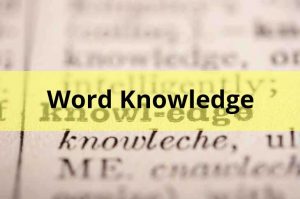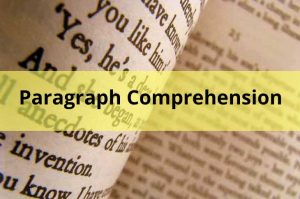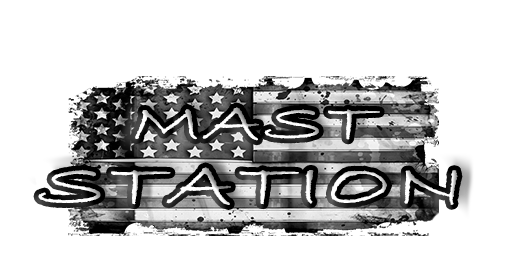



If you’re eager to start your career in the US military, you’ll need to pass a qualification test. First, it is good to know the difference between the AFQT vs. ASVAB scores. We’ll take you through the differences and the score requirements for each one, and what’s required by each branch of the military.
Armed Services Vocational Aptitude Battery (ASVAB) is a multiple-choice qualification test to see whether you’re eligible to join the US armed forces.
The ASVAB test contains the following sections: Arithmetic Reasoning, Mathematics Knowledge, Paragraph Comprehension, Word Knowledge, General Science, Electronics Information, Auto Information, Shop Information, Mechanical Comprehension, and Assembling Objects.
These test sections on the ASVAB test are to check the best fit for your military occupational specialty (MOS). These include roles such as Combat Engineer or Marine Corps Aviation Supply Specialist.
Each specialist military role requires a particular combination of ASVAB scores. So, if you want to become a Combat Engineer, which is in the Combat (CO) category, you’ll need strong scores in the following sections: Coding Speed (CS), Arithmetic Reasoning (AR), Auto and Shop Information (AS), and Mechanical Comprehension (MC).
If you dream of working as an Ammunitions Specialist, then you’d be expected to have high scores in the Skilled Technical (ST) category, which means you have good scores on the Mechanical Comprehension (MC), Word Knowledge (WK), Paragraph Comprehension (PC), General Science (GS), and Mathematics Knowledge (MK) sections.
For more details on what ASVAB scores are needed for these specialist military roles, check the US Military MOS Database.
AFQT means the Armed Forces Qualification Test, and it is part of the overall ASVAB. An individual’s score in the AFQT determines whether they are eligible to join the military at all. It is therefore extremely important to any prospective military career.
The rest of the scores as part of the ASVAB are to determine the job choices (MOS) that a person has once they are enlisted in the military.
Your AFQT score is weighted based on the average score across the US by 18 to 23-year-olds who have also taken the test. So, if you score 50 in the AFQT, this means that your score is average across the country. If your AFQT score is 90, then you scored as well as, or better than, 90% of those 18 to 23-year-olds who have also taken the test.
First, let’s review some commonly used acronyms: HSD is High School Diploma, GED is General Education Diploma, and AFQT is Armed Forces Qualification Test. We’ll now take you through the enlistment score requirements in detail.
The Air Force requires an AFQT score of 31 or higher, and very few applicants are accepted without an HSD. Over 90% of eligible applicants have an HSD and AFQT percentile score of 50 or above. Less than 1% of recruits that enter the Air Force each year have only a GED instead of an HSD. The positive news is that if you have college credits, you’re more likely to be promoted to a higher enlistment rank.
The US Army requires a GED and AFQT score of 31 for all recruits. If you have more than 50 on the AFQT score chart, then depending on your circumstances, there are enlistment bonuses. However, if you have a GED, it’s more likely you’ll be accepted into the Army than any other military branch. For those of you with college credits, there are more options to join a higher enlistment rank. Have a college degree? You have the possibility of entering the Army at the high rank of E-4.
This is the most challenging branch of the military to enter. You’ll need an ASVAB score of at least a 36. Bear in mind that 95% of recruits have an HSD. If you have a GED, the minimum AFQT score expected of you is 47. However, with 30 college credits, you could join the advanced enlistment rank of E-2 or E-3 with at least 60 college credits.
If you don’t have an HSD then it’s difficult for you to enlist, as only 5% of recruits with a GED are allowed into the Marine Corps. You’ll need to get 32 on the ASVAB tests to join the Marine Corps. If you have a GED, your minimum AFQT score must be 50. For those recruits with college credits, there are still advanced enlistment ranks available, but only up to E-2.
To join the National Guard, you’ll need a minimum AFQT score of 31. If you have a GED rather than an HSD, the minimum AFQT score expected of you is 50. If you’re a GED holder with 15 college credits at the 100 level or higher, the National Guard considers this equal to a recruit with High School Diplomas.
The minimum AFQT score to join the Navy is 35. There is a reserve enlistment available for those of you who score higher than 3. It’s rare for the Navy to accept recruits without an HSD. If you have a GED, you must provide three references from a professional in the community, such as teachers, civil servants, police officers, or firefighters. If you have college credits, you can boost your enlistment ranking as high as E-3.
© 2024 Mast Station. All Rights Reserved EST

